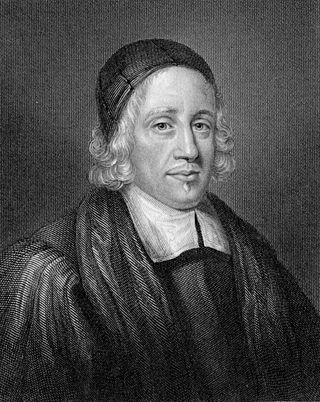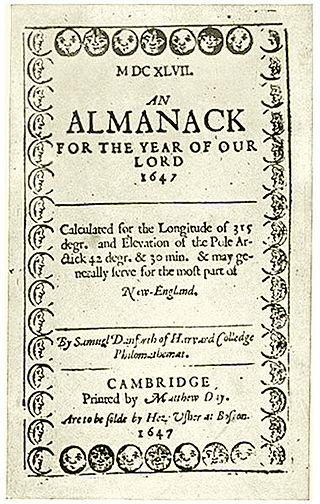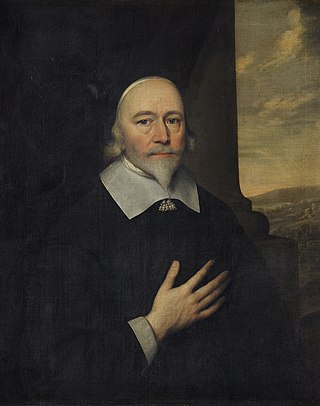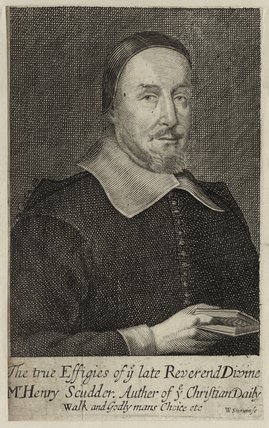Related Research Articles

John Lightfoot was an English churchman, rabbinical scholar, Vice-Chancellor of the University of Cambridge and Master of St Catharine's College, Cambridge.

George Gillespie was a Scottish theologian.

John Goodwin (1594–1665) was an English preacher, theologian and prolific author of significant books.

Samuel Danforth (1626–1674) was a Puritan minister, preacher, poet, and astronomer, the second pastor of The First Church in Roxbury and an associate of the Rev. John Eliot of Roxbury, Massachusetts, known as the “Apostle to the Indians.”
John Saltmarsh was an English religious radical, "One of the most gentle tongued of controversialists", writer and preacher. He supported the Covenant and was chaplain in Thomas Fairfax's army. The Dictionary of National Biography describes his theology as "Calvinistic in its base, but improved by practical knowledge of men". William Haller called him "that strange genius, part poet and part whirling dervish". He preached Free Grace theology, and published on the topics of Peace, Love and Unity.
Richard Holdsworth was an English academic theologian, and Master of Emmanuel College, Cambridge from 1637 to 1643. Although Emmanuel was a Puritan stronghold, Holdsworth, who in religion agreed, in the political sphere resisted Parliamentary interference, and showed Royalist sympathies.

Samuel Bolton was an English clergyman and scholar, a member of the Westminster Assembly and Master of Christ's College, Cambridge.
Lazarus Seaman, was an English clergyman, supporter in the Westminster Assembly of the Presbyterian party, intruded Master of Peterhouse, Cambridge, and nonconformist minister.
Henry Wilkinson (1610–1675) was an English clergyman, in the Commonwealth period a canon of Christ Church, Oxford, Lady Margaret Professor of Divinity, and member of the Westminster Assembly. Later he was a nonconformist preacher.
Hugh Gray was an English churchman and academic, and the second Gresham Professor of Divinity.

William Bates (1625–1699) was an English Presbyterian minister.

Richard Love (1596–1661) was an English churchman and academic, Master of Corpus Christi College, Cambridge, Lady Margaret's Professor of Divinity, member of the Westminster Assembly, and Dean of Ely.

Henry Scudder was an English minister of presbyterian views, known as a devotional writer, and member of the Westminster Assembly.
Nathaniel Hardy (1618–1670) was an English churchman, Dean of Rochester from 1660.

Nicholas Lockyer (1611–1685) was an English clergyman and Independent minister, a close supporter of Oliver Cromwell and Provost of Eton College, and later an ejected minister and nonconformist.
Henry Wilkinson (1616–1690) was an English clergyman and academic, Principal of Magdalen Hall, Oxford and White's Professor of Moral Philosophy, and later an ejected minister.
Anthony Farindon, was an English royalist divine.
Martin Fynch or Finch was an English ejected minister.
Ralph Battell, D.D. (1649–1713) was an English divine.
Peter Vinke, was an English divine.
References
 This article incorporates text from a publication now in the public domain : "Horton, Thomas (d.1673)". Dictionary of National Biography . London: Smith, Elder & Co. 1885–1900.
This article incorporates text from a publication now in the public domain : "Horton, Thomas (d.1673)". Dictionary of National Biography . London: Smith, Elder & Co. 1885–1900.